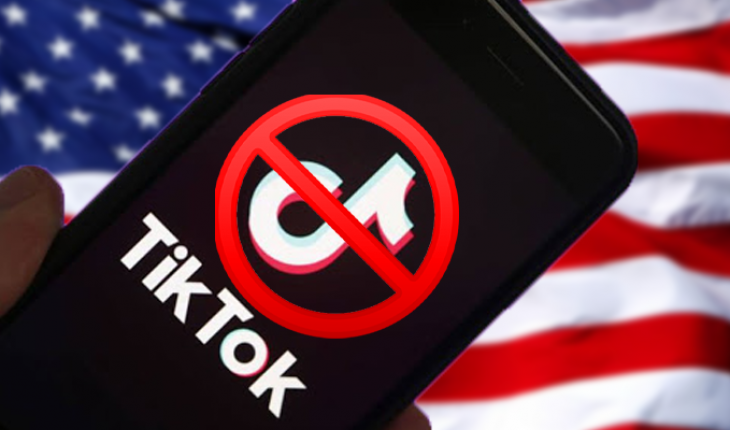One more episode adds to the escalation of tensions between Beijing and Washington that have long been heading for a new Cold War. U.S. President Donald Trump signed Thursday night two executive orders banning U.S. companies from transacting with Chinese companies ByteDance, which owns the TikTok short video platform, and with Tencent, to which the WeChat messaging app belongs. The presidential decree, which takes effect in 45 days, has been justified by the White House as a measure of protection for America’s “national security, economy, and foreign policy.”
The move is a further step in the rapid deterioration experienced in recent weeks by the bilateral relationship between the two powers, which is going through its most powerful moment since the establishment of diplomatic relations in 1972. Trump has recently accused Chinese diplomatic headquarters of spying on U.S. territory and has now opted to point out the Asian giant’s technology that has gained popularity among Americans, from every November election. China, for its part, has denied the accusations of the U.S. president, but has responded with equally harsh measures.
Trump has gone from holding a trade war with Beijing to setting his sights on Chinese platforms. “The United States must take aggressive action against the owners of TikTok to protect our national security,” the order signed by the president said. Last week, Trump threatened to ban the use of TikTok in the United States by claiming that the app was stealing user data to be delivered to the Chinese government. Something the company and Beijing have denied. Following the warning, Microsoft raised his hand to negotiate the purchase of the platform and his lean advisor, Satya Nadella, stood on the phone with Trump to communicate to the tech’s intentions to safeguard app information in the United States.
The new order increases pressure for Microsoft and ByteDance to reach an agreement soon, setting a date for the cessation of Chinese firm’s U.S. firm operations Trump has drawn up his experience as a real estate entrepreneur and put a couple of conditions on tech: that some of the proceeds of the transaction go to the U.S. Treasury and reach a decision no later than 15 September. In the case of WeChat the surprise has been greater. This veto is a strong blow to this ubiquitous metaplataform in China, which channels much of the communication with communities in the diaspora, one of the few digital bridges stretched between the Asian giant and the rest of the world.
“An obvious act of intimidation that we strongly oppose.” So the Chinese government has called the ultimatum launched by Trump, a threat that could be replicated by China and deepen the global fragmentation of the Internet. “Under the pretext of national security, the United States frequently uses national power to irrationally repress foreign companies,” said Wang Wenbin, spokesman for the Ministry of Foreign Affairs, at the institution’s daily press conference. The spokesman has criticized the manoeuvre because it involves “meaningless political manipulation” that “damages America’s image and moral position in the international community.” He has also defended Chinese companies, ensuring that they “carry out their business activities in compliance with the principles of market economy and complying with the laws and regulations of the country”. “We urge the U.S. to correct these incorrect practices, refrain from politicizing economic problems, stop cracking down on relevant companies, and provide a fair and non-discriminatory environment,” Wang said.
In a report released on Friday, the consultancy Eurasia noted that the Chinese response to vetoes may occur in the form of retaliation such as “the use of antitrust or cybersecurity regulations (…), supply chain security reviews or new research on business practices”, all in order to “host U.S. companies” operating in its territory.
China’s official press, for its part, has harshly criticized the US administration. In an article published on Friday, the Global Times tabloid has called Trump a “modern pirate” and the maneuver, “equivalent to a robbery.” Significantly, for the first time in recent months the attacks personally point to the president rather than members of his Administration, which until now had been interpreted as sign of containment.
In a statement, ByteDance has stated that “the executive order (…) has been issued without respect for the procedure” and has threatened to take legal action. “We will pursue every possible solution to ensure that the rule of law is not violated and that our company and users are treated fairly, if not by the Administration, at least by the courts of the United States,” the text read.





